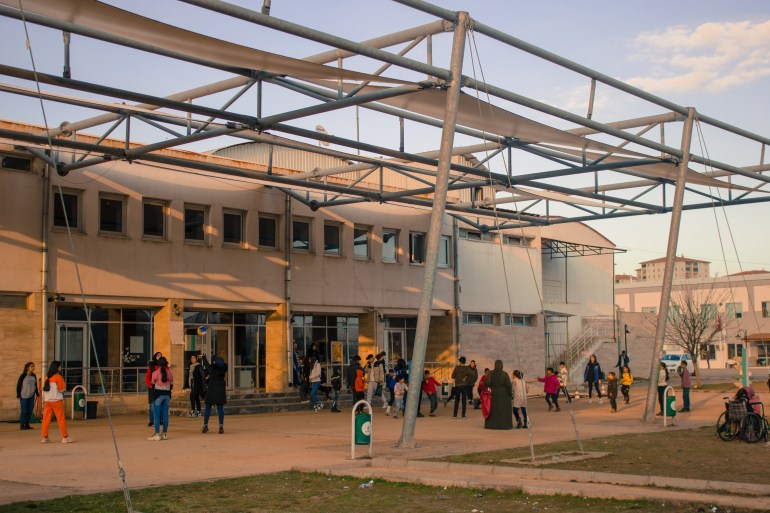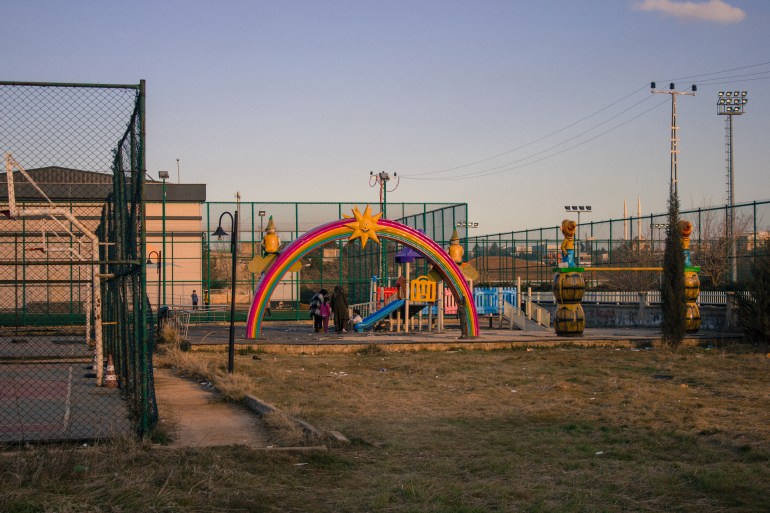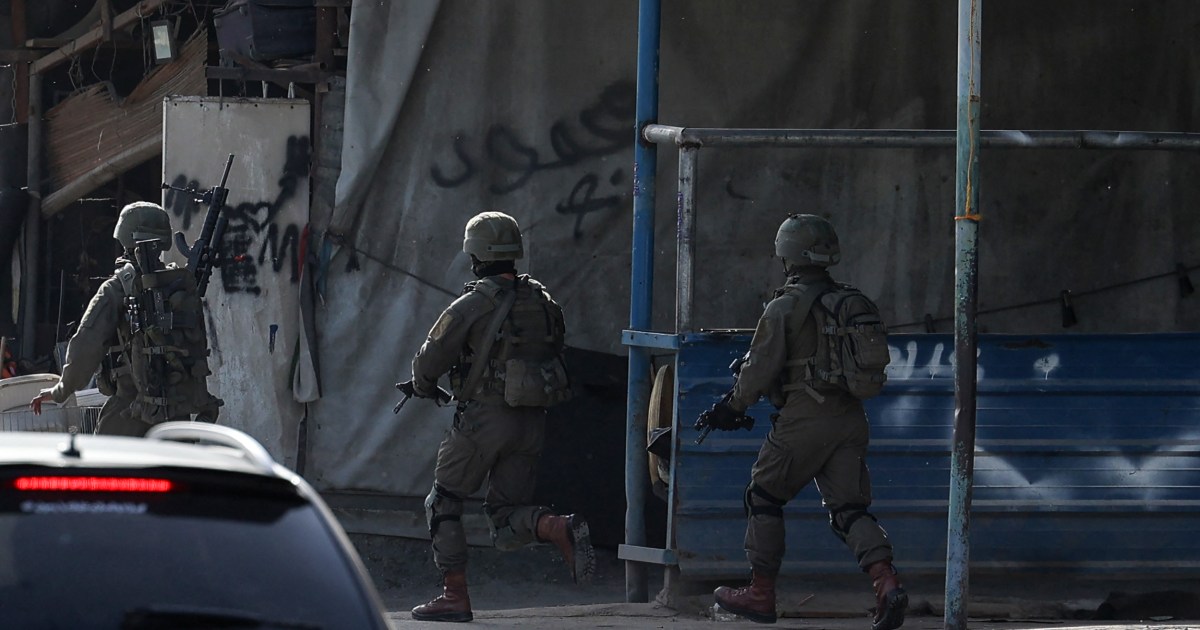Turkey’s Syrian refugee youth worry about the future post-quakes
“Messi or Ronaldo?” is the most common question the aspiring young football stars of the Gazikent community centre-turned-refuge ask each other and newcomers. The children of Gaziantep cannot be kept from playing in the rubble of flattened buildings, near makeshift roadside shelters, or in state-constructed tent cities.
The football pitches and indoor spaces of Gazikent, repurposed post-earthquake to house as many as 5,000 displaced people, resounded with activity — the clamour of play and friendly contestations settled in Syrian Arabic and Turkish.
Other youngsters, less inclined to sport, played games, chatted, or wandered around to cope with the boredom and indignity of emergency sheltering. Aimless distractions to soothe the pain of losing homes, loved ones, and possibly what was an already tenuous future.
Once very full, the Gazikent refuge has mostly been disbanded now that a strange normalcy resumed in Gaziantep post-earthquake. “About 100 people remain, mostly Syrians too afraid to return home,” a local volunteer tells Al Jazeera. The football pitches that once accommodated hundreds of families in thermal tents welcome back the kids with their footballs.
Eighteen-year-old Yousef, from Aleppo, says Gazikent is saving him from destitution. He once toiled through 14-hour days at a local clothing factory to survive, until the earthquakes irreparably damaged his workplace and home.

Standing in the crowded community centre lobby as a football tournament organised by international volunteers is about to start, he says: “I have no job and I have no idea what to do. If I don’t work, I don’t eat. Gazikent is closing and I don’t know where I will go.
“The last two nights, I slept three hours,” Yousef continues, before walking off. He is open yet hard to read, at the same time.
Resignation and helplessness permeate his otherwise warm and calming presence. He and his friends start dancing a little later, in defiance perhaps, but the shelter supervisor turns off the Kurdish music, finding it too happy for the current atmosphere.
Single-handedly supporting his parents and five younger siblings, 18-year-old Saleh, also originally from Aleppo, has not had an income since the slipper factory he worked at for the past five years became inoperable.
His family has no money to buy food. Dreading his unemployment dragging on, Saleh was relieved by the sudden announcement that work might resume soon: “My boss is trying to fix the damage and the factory will be inspected before it is reopened,” he says. Anxious anticipation has replaced the uncertainty petrifying him when we first met by the Gazikent football enclosures.
Thankful to be alive
“Syrians don’t have the savings to endure such a situation,” mourns Mahmoud, a young Syrian factory worker, also from Aleppo. He and his family have never had to rely on emergency shelters. He has no money and is devastated.

“We are paid less than Turkish people. My monthly salary is 7,200 Turkish liras [$383] and the minimum wage is 8,500 [$452]. No one can save enough for an earthquake on that much.”
Mahmoud has a graceful demeanour, even in difficult circumstances. When asked how he is, he almost always replies that he is thankful to be alive. When the conversation turns to politics, though, small cracks appear as he struggles to repress his resentment.
Underpaid and employed clandestinely, Mahmoud was forced to return to his 12-hour shifts although the shoe factory on the outskirts of Gaziantep where he works is not structurally sound. “The boss doesn’t care much about worker safety,” he says calmly.
The threat of not having work at all intimidates employees into going along with the illicit reopening. “The workers who don’t show up are punished and can’t return for a week,” Mahmoud says.
Because he wants to resume production after the earthquakes, the boss has excused the few workers who have not shown up for a while. The factory depends on cheap Syrian labour, and Syrian workers depend on the gruelling factory work for subsistence.
Spared widespread obliteration, Gaziantep, an industrial powerhouse with a population of two million on Turkey’s southern border with Syria, appears resurgent and largely unscathed. Lawless traffic is everywhere again and people fill the downtown core. Most family-run restaurants and shops have reopened, even if business may be slower than they hoped. Beyond the ruined castle and collapsed historic mosques, proof of what happened here is more internal than tangible.

Building inspections happened quickly and determined that most residents can return home. But the last, unexpected magnitude 6.5 earthquake frightened thousands enough that they camped outside in state-provided tents or homemade shelters, among the already displaced.
“I am happy to be home, but I am scared,” Saleh discloses. His house is no longer safe after the last powerful tremor, “minor damage became more serious”.
Mahmoud shows me a video of his room. Tangles of cracks like tree roots cover the walls. His family has been staying at his uncle’s house, although it, too, is questionable. “I’m not so worried but my mother is terrified.”
“Shelters are not solutions,” asserts Khadija, a computer science student and Mahmoud’s older sister, over the phone from her uncle’s house. Their older sister studies the Quran and the rest of the family are observant Muslims, so meeting in person was not possible. “Living in tent cities is not Islamic,” she says. “Men and women mix too much.”
Yousef finds shelter conditions at Gazikent uncomfortable and exposed, even at far-reduced occupancy. “There aren’t proper places to sleep and there aren’t enough blankets,” he says.

When Saleh and his family were there, he says, they could not find baby formula, diapers, blankets, sleeping bags, or even food. “We slept there for a week and only ate two or three days,” he said. Now they are having a hard time finding a new house.
“An apartment in an unsafe area used to cost 2,000 liras [$106] per month, now prices are 5,000 or 6,000 liras [$266 or $319],” Mahmoud informs me. “Landlords are taking advantage of the situation.”
We are hungry and Mahmoud suggests we eat simit, a doughnut-shaped leavened bread coated in sesame. I counter, proposing to treat him to falafel, but at the end of the meal Mahmoud insists on paying for me.
“Friendship is more important than money,” he argues.
‘We’re trapped’
The Syrian refugee youth in Gaziantep have limited options. Syrians under temporary protection in Turkey can only leave the municipality they are registered in with special permission. The policy was relaxed post-earthquake to allow for 60 days of free movement, but that has not eased their feelings of confinement and instability.
“We’re trapped,” Mahmoud repeats. “If we seek refuge elsewhere but don’t come back after 60 days, we’ll be deported to Aleppo.”
Financed by the European Union, Turkey hosts upwards of 4.5 million Syrians and ranks first for humanitarian aid expenditure as a percentage of gross domestic product (GDP).
“Europe pays for borders to stay closed,” Mahmoud remarks ironically. “Turkey doesn’t want us to leave.”

Yet young Syrians, angered by experiences of racism and prejudice, do not feel welcome to stay.
“Once two Turkish men harassed me on my way home from university,” recounts Khadija. “When I replied in Turkish, they apologised: ‘Oh my God, we are so sorry, we thought you were a Syrian girl.’”
I ask her if, after 10 years in Gaziantep, she has any Turkish friends. “No, I avoid Turkish circles,” Khadija responds, “because the risk of facing racism is too high.”
Even at Gazikent, social divisions manifest. The physicality of football does not unite the Turkish and Arabic-speaking kids, who play separately.
A Turkish high school student sitting on the benches between football pitches says he is studying for university entrance exams and wants to become a pilot in the Turkish army. Syrian kids playfully interrupt the conversation with an invitation to play football.
“Arabs are so rude,” he comments.
“Since the flow of refugees is high, conflict arises,” he explains. Asked what could calm the discord, he suggests it is irresolvable.
“Some Turks accused Syrians of causing the earthquake,” Saleh says, “a fight broke out between Turks and Syrians.”
Illiteracy among Syrian youth
Mahmoud remembers that story and has more. “Kids leave school because of racism and I don’t blame them,” he says.
His school once instructed Turkish youth in the morning and Syrian students in the afternoon. “Racist words were exchanged in the corridors,” Mahmoud recalls painfully. “Turkish students would throw the desks and chairs on the classroom floor before the Syrians entered.”
Repulsed by discrimination and bleak prospects, Mahmoud is not bothered with learning to speak Turkish well. In Gaziantep, he completed one year of high school in Arabic and decided not to enrol in the integrated classes first offered by the Turkish government the following year.
“I only graduated through open learning, studying remotely,” he says. He is teaching himself to speak English and hopes to go on to French or Spanish.
Khadija, who also completed high school through open learning, feels discriminated against at her university. “Professors sometimes ignore questions from Syrian students and Syrians pay higher tuition fees.”
Prejudice and poverty have come together to limit access to education to the point that illiteracy is widespread among Syrian youth. “There are families so poor that kids have to work to live,” Mahmoud says. Saleh is one of those kids.

Half Kurdish and half Syrian Turkmen, Saleh arrived in Gaziantep 10 years ago but has only attended one week of public school in Turkey. He struggles to read, even in Turkish, his preferred language. No
ne of his five younger siblings attends school either; his family cannot provide the necessary school supplies, amounting to more than 400 Turkish liras ($21) a month.
The earthquakes have interrupted school for even those students who managed to enrol, though.
“Constant fear of losing our house prevents me from studying,” says Khadija. “Universities have closed and there are not even online classes. It will affect our future and young Syrians are scared about our future.”
Mahmoud dreams of scoring a scholarship to study political science abroad. Saleh is modest in imagining his next steps. “All I want is a nice life,” he says.
Turkish flags in Gaziantep no longer fly at half-staff, but it seems premature to say the city has fully begun coming to terms with the grief, destruction, and anxiety. No matter how much the city around them seems to be waking up post-calamity, the refugee youth of Gaziantep will continue to wander, worry, work, wait, and wonder.
“Is there help for Syrians?” Saleh asks innocently.



